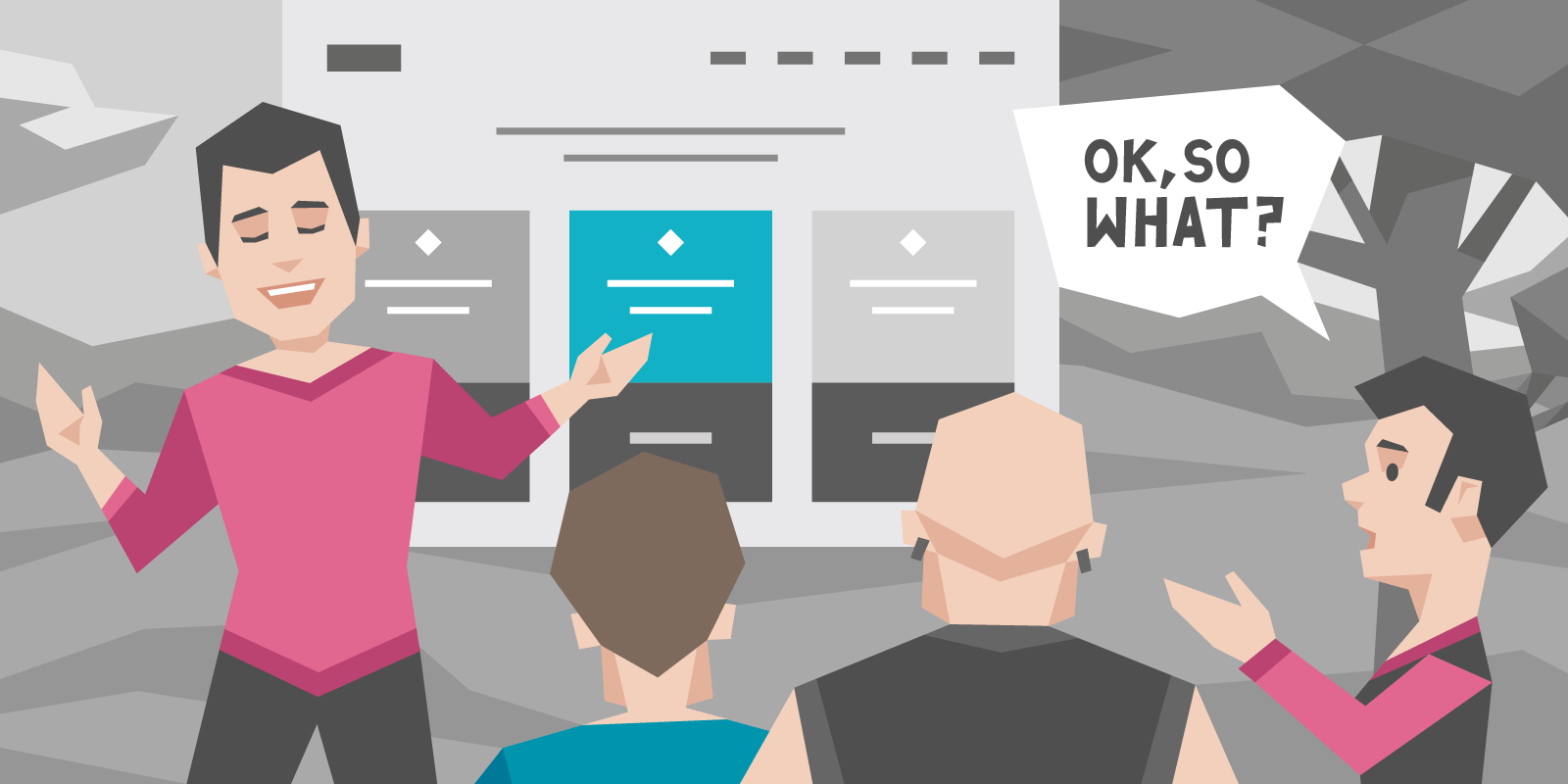
Benefits vs Features – Why You Need Both To Sell
Asking yourself a simple question can help you combine benefits & features and connect them in a way that makes sense to your audience.
Day 20: So what?
I have a PS4 with 150 games downloaded onto it.
I have a collection of 20 designer suits, all dry cleaned and ready to be worn.
I make $4,000,000 a year selling rubber bands to angry monks.
So what?
Good question. What about this?
I have a PS4, and you can use it as often as you want.
I have a collection of designer suits, and you can wear them free of charge.
I make $4,000,000 a year, and I’ll give you 10% of it just for being my friend.
This is the difference between features and benefits, and here’s the important distinction between the two:
- Features are what your product is/does
- Benefits are the problem your product solves
One of them is going to consistently make you sales. The other won’t.
Question is, how do we know whether we’re writing feature-driven copy, or benefit-driven copy?
The “so what?” test, of course!
Ask that question about every sentence on your website, and you’ll find out where you’re going wrong really freakin’ fast.
Customer wants to nod along while they’re reading. They want to know you understand their problem, and have designed a product that effectively solves it. The “so what?” test is great for understanding whether your copy is “head-nodding” or “head-scratching”.

Benefit-driven copy is what gets heads nodding, but that doesn’t mean features don’t have their place.
People buy on emotional impulses (which is what your benefits are for), but they want to justify their emotional decisions with logic – that’s where features come in.
You’ve probably seen a lot of websites listing everything they offer. A lot of them do it wrong.
What about an example?
Take a look at this:

The headline is a red-flag. “Revolutionise Accounts Payable”? What the hell does that mean?
The features suffer from the same problem.
Let’s use the “So what” test on them:
- “Technology to capture supplier information, invoice totals and line item details.” -> Ok, so what?
This is a description of the feature, not a description of the benefit (security and time-saving)
- “Smart automated invoice and purchase order matching plus exception handling.” -> Ok, so what?
This isn’t even a description. The copy leads the reader over the edge of a cliff, with no closure on why they had to read what they just read.
- “Automated accounts payable enabling real-time cashflow management and reporting.” -> Ok, so what?
This is almost benefit-driven copy. The “enabling real-time cashflow” bit hints at a benefit, but doesn’t offer an objective advantage to using it.
Point is, anytime someone reads copy that doesn’t fill in the reader’s blanks, the blanks get filled with objections and uncertainty. Bye-bye, sale.
What that copy could have looked like
- “Automated data capturing. It’s secure, fast, and means no more manual work.”
Benefit.
- “Automated invoice and purchase order matching. For extra security and peace of mind.”
Benefit.
- “Real-time cashflow management and reports that show you the big picture in seconds.”
Benefit.
The copy is fairly similar, but we bunged some useful, reader-centric copy at the end. And it makes a significant difference.
The features are still there, but the benefits are what gives them power.
Here’s a good example:

This is super-benefit-driven copy, and the result is a page that leaves us wanting more.
Your homework
You have three options today:
- Take the “So what?” test with your copy. Pick a page, read it, analyse it, and fix it.
If you want to cheat…
2. Run the same exercise, but only on copy that focuses on your “features”. Add some benefits.
But if you want to go hard on this exercise.
3. Ask “So what?” on your whole website until you can’t make your copy any clearer. If you do this, your website will be copy-perfect, so it is a worthy use of your time.
Good luck 🙂
